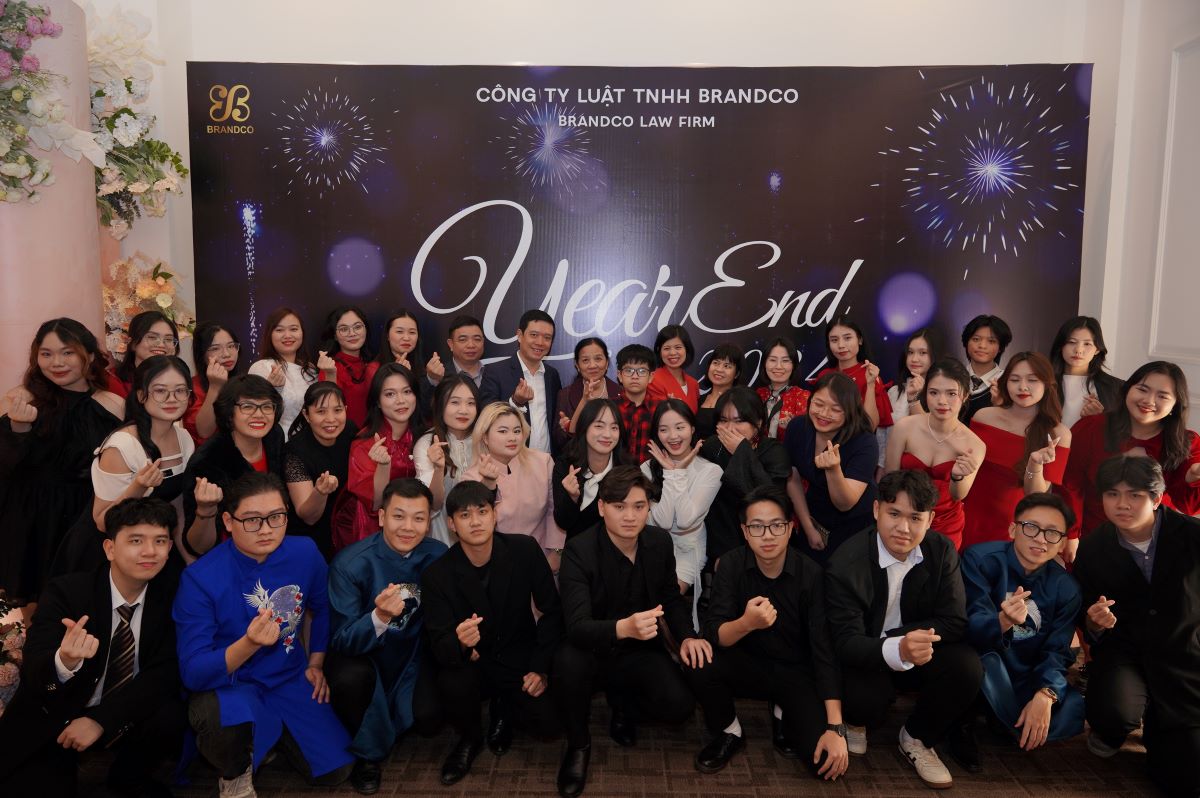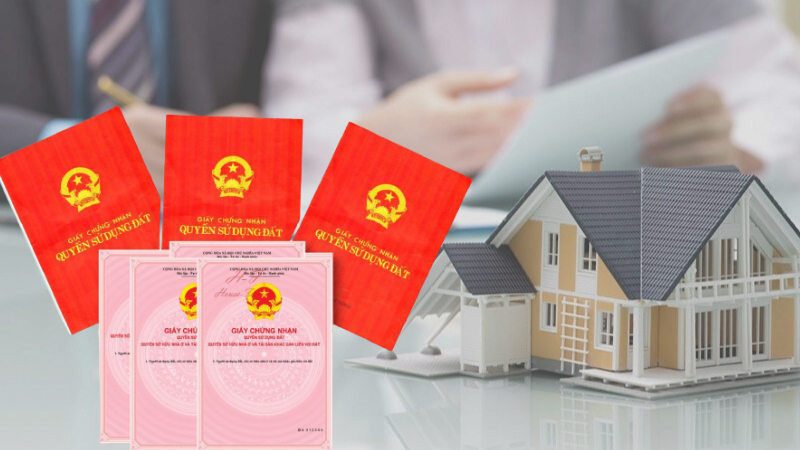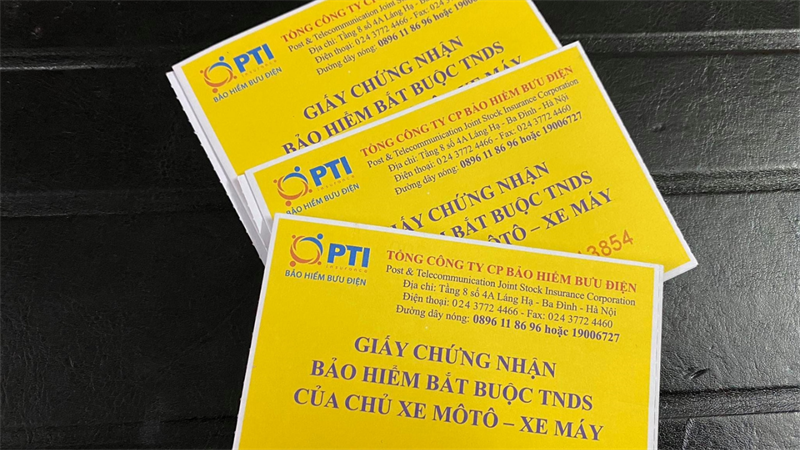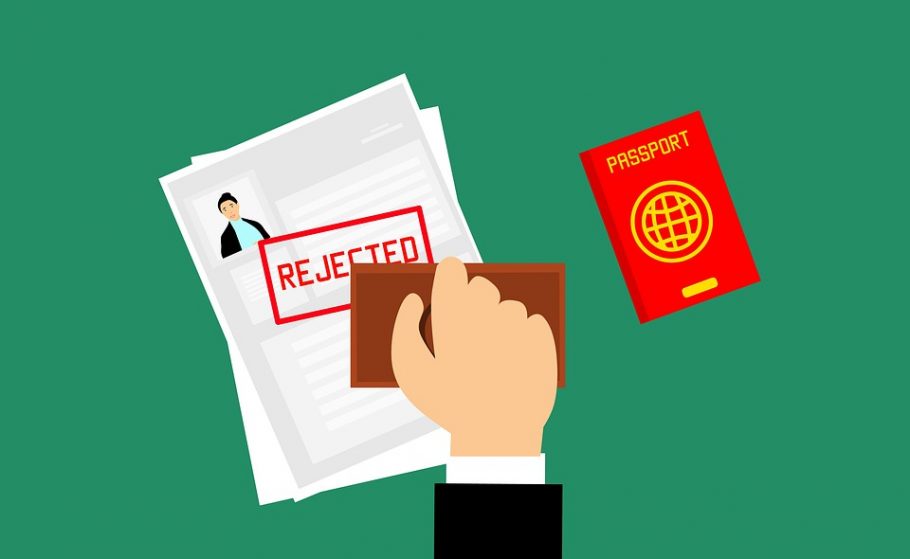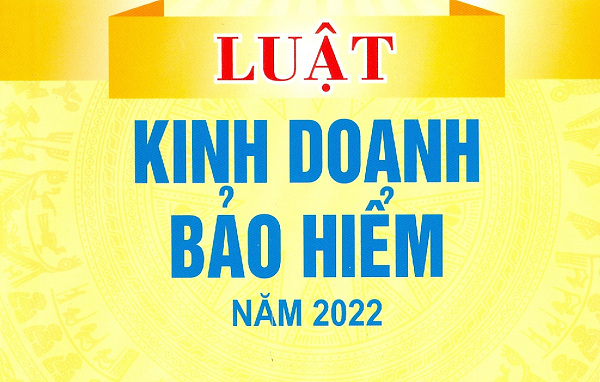Statute of Limitations for Civil Lawsuits
1. General Provisions on the Statute of Limitations for Lawsuits
1.1. Concept of the Statute of Limitations for Lawsuits
Article 149 of the 2015 Civil Code (CC 2015) stipulates:
"1. A time limit is a period specified by law, upon the expiration of which, legal consequences arise for the subject under the conditions prescribed by law.
The statute of limitations is applied in accordance with the provisions of this Code and other relevant laws.
The court only applies the provisions on the statute of limitations at the request of one or both parties, provided that this request must be made before the court of first instance issues a judgment or decision resolving the case.
The person who benefits from the application of the statute of limitations has the right to refuse to apply the statute of limitations, except where such refusal is for the purpose of evading the performance of obligations."
Article 184 of the 2015 Civil Procedure Code stipulates the statute of limitations for initiating lawsuits and requesting the settlement of civil matters as follows:
"1. The statute of limitations for initiating lawsuits and requesting the settlement of civil matters shall be implemented in accordance with the provisions of the Civil Code.
The court only applies the provisions on the statute of limitations at the request of one or both parties, provided that this request must be made before the court of first instance issues a judgment or decision resolving the case.
The person who benefits from the application of the statute of limitations has the right to refuse to apply the statute of limitations, except where such refusal is for the purpose of evading the performance of obligations."
Thus, according to the above regulations, the statute of limitations for initiating a lawsuit is the time limit within which the subject has the right to initiate a lawsuit to request the court to resolve a civil case to protect their legitimate rights and interests that have been infringed upon; if that time limit expires, the right to initiate a lawsuit is lost. The statute of limitations for initiating a civil case is counted from the date the person with the right to request knows or should have known that their legitimate rights and interests have been infringed upon, unless otherwise provided by law. According to the provisions of the 2015 Civil Procedure Code, the statute of limitations for initiating a lawsuit is implemented in accordance with the provisions of the 2015 Civil Code. The court only applies the provisions on the statute of limitations at the request of one or both parties, provided that this request must be made before the court of first instance issues a judgment or decision resolving the case.
Because the law has different provisions on the statute of limitations for initiating lawsuits, in order to correctly determine the statute of limitations for initiating a lawsuit, it is necessary to determine whether that dispute relationship is governed by any other legal document that provides for the statute of limitations for initiating a lawsuit or not. On the other hand, it is necessary to correctly determine which day is considered the day on which legitimate rights and interests are infringed upon in order to start calculating the statute of limitations for initiating a lawsuit.
1.2. Cases Where the Statute of Limitations for Lawsuits Does Not Apply
According to the provisions of Article 155 of the 2015 Civil Code, the statute of limitations for initiating a lawsuit does not apply in the following cases:
Requests to protect personal rights that are not attached to property.
Requests to protect ownership rights, unless otherwise provided by this Code or other relevant laws.
Disputes over land use rights in accordance with the Land Law.
Other cases provided by law.
1.3. Time That Is Not Included in the Statute of Limitations for Civil Lawsuits and Requests for Settlement of Civil Matters
According to Article 156 of the 2015 Civil Code, the time that is not included in the statute of limitations for civil lawsuits and requests for settlement of civil matters is the period during which one of the following events occurs:
Force majeure or objective obstacles that make it impossible for the subject with the right to initiate a lawsuit or request to initiate a lawsuit or request within the statute of limitations. In which:
Force majeure is an event that occurs objectively, cannot be foreseen, and cannot be overcome despite taking all necessary and possible measures.
Objective obstacles are obstacles caused by objective circumstances that make it impossible for a person with civil rights and obligations to know that their legitimate rights and interests have been infringed upon or to exercise their civil rights and obligations.
There is no representative in cases where the person with the right to initiate a lawsuit or the person with the right to request is a minor, has lost civil act capacity, has difficulties in perception and control of behavior, or has limited civil act capacity.
Minors, persons who have lost civil act capacity, persons with difficulties in perception and control of behavior, and persons with limited civil act capacity do not have other substitute representatives in the following cases:
The representative dies if he/she is an individual, ceases to exist if he/she is a legal entity;
The representative is unable to continue representing for legitimate reasons.
1.4. Restarting the Statute of Limitations for Civil Lawsuits
Clause 1, Article 157 of the 2015 Civil Code provides for Restarting the statute of limitations for civil lawsuits as follows:
"1. The statute of limitations for initiating a civil lawsuit restarts in the following cases:
a) The obligor has acknowledged part or all of their obligations to the plaintiff;
b) The obligor acknowledges or completes part of their obligations to the plaintiff;
c) The parties have reconciled with each other.
The statute of limitations for initiating a civil lawsuit restarts from the day following the day on which the event specified in Clause 1 of this Article occurs."
2. Statute of Limitations for Some Civil Disputes
2.1. Statute of Limitations for Initiating a Lawsuit to Request the Court to Resolve Contract Disputes
Article 429 of the 2015 Civil Code stipulates "the statute of limitations for initiating a lawsuit to request the court to resolve a contract dispute is 03 years, from the date the person with the right to request knows or should have known that their legitimate rights and interests have been infringed upon." In principle, this statute of limitations applies to contracts that have taken effect and during the performance of the contract, disputes arise.
However, according to Article 462 of the 2015 Civil Code, a conditional contract is a type of contract in which the performance depends on the occurrence, change, or termination of a certain event. Regarding the validity of a conditional contract, the BLDS has not clearly stipulated. Thereby, leading to the application of the statute of limitations for this type of contract as prescribed in Article 429 of the Civil Code, there are certain inadequacies.
2.2. Inheritance Time Limit
Regarding the inheritance time limit, according to the provisions of Article 623 of the 2015 BLDS:
"1. The time limit for heirs to request the division of inheritance is 30 years for immovable property, 10 years for movable property, from the time of opening the inheritance. After this period, the inheritance belongs to the heir who is managing that inheritance. In case there is no heir managing the inheritance, the inheritance shall be handled as follows:
a) The inheritance belongs to the person who is possessing it in accordance with the provisions of Article 236 of this Code;
b) The inheritance belongs to the State, if there is no possessor as prescribed in Point a of this Clause.
The time limit for heirs to request confirmation of their inheritance rights or to reject the inheritance rights of others is 10 years, from the time of opening the inheritance.
The time limit for requesting heirs to perform property obligations left by the deceased is 03 years, from the time of opening the inheritance."
Thus, the time milestone for calculating the inheritance time limit is the time of opening the inheritance. According to the provisions of Clause 1, Article 611 of the 2015 Civil Code, the time of opening the inheritance is the time when the person with the property dies. In case the court declares a person dead, the time of opening the inheritance is the date specified in Clause 2, Article 71 of the 2015 Civil Code.
Currently, regarding the calculation of the inheritance time limit for cases of opening the inheritance before January 1, 2017 (the date the 2015 Civil Code takes effect), it is found that:
– Clause 1, Article 688 of the 2015 Civil Code stipulates as follows: "1. For civil transactions established before this Code takes effect, the application of law is prescribed as follows: d) The statute of limitations is applied in accordance with the provisions of this Code."
– Sub-section 1, Section III of Official Letter No. 01/GĐ-TANDTC dated July 25, 2016 of the Supreme People's Courtanswers a number of issues on criminal, criminal procedure, and civil procedure, guiding: "... From the date the 2015 Civil Code takes effect, the Court shall apply the provisions of Article 623 of the 2015 Civil Code to determine the time limit for cases where the time of opening the inheritance is before January 1, 2017..."
Pursuant to Clause 3, Article 7 of Resolution No. 04/2017/NQ-HĐTP dated May 5, 2017, of the Council of Judges of the Supreme People's Court guiding: "Other cases as prescribed by law" specified in Point d, Clause 3, Article 192 of the 2015 Civil Procedure Code are cases not yet specified in the 2015 Civil Procedure Code but have been specified in this Resolution, other legal documents, or in international treaties to which the Socialist Republic of Vietnam is a member. "Other cases as prescribed by law" specified in this Resolution are:
a) For civil cases disputing property inheritance where, before January 1, 2017, the Court returned the lawsuit petition or issued a decision to suspend the case and return the lawsuit petition because of the reason "the statute of limitations for initiating legal proceedings has expired," but according to the provisions of Clause 1, Article 623, Point d, Clause 1, Article 688 of the 2015 Civil Code, the statute of limitations for initiating legal proceedings in that case still exists, then the petitioner has the right to file a lawsuit petition again according to the provisions of Point d, Clause 1, Article 688 of the 2015 Civil Code and Point d, Clause 3, Article 192 of the 2015 Civil Procedure Code.
b) For civil cases dividing common property that is inherited property that has expired 10 years from the time of opening the inheritance, which before January 1, 2017, the Court issued a decision to suspend the case and return the lawsuit petition because it did not meet the conditions for initiating a lawsuit to divide common property, but according to the provisions of Clause 1, Article 623, Point d, Clause 1, Article 688 of the 2015 Civil Code, the statute of limitations for initiating a lawsuit to divide inheritance for that inherited property still exists, then the petitioner has the right to file a lawsuit petition requesting the division of inherited property according to the provisions of Point d, Clause 1, Article 688 and Point d, Clause 3, Article 192 of the 2015 Civil Procedure Code, and the Court shall consider and accept it for settlement according to the general procedure.
In Section I on civil matters of Official Dispatch No. 01/GĐ-TANDTC dated January 5, 2018, of the Supreme People's Court, some professional issues are answered with guidance:
"Since the 2015 Civil Code came into effect, according to the provisions of Point d, Clause 1, Article 688 of the 2015 Civil Code, Clause 4, Article 2 of Resolution No. 02/2016/NQ-HĐTP dated June 30, 2016, of the Council of Judges of the Supreme People's Court guiding the implementation of a number of provisions of Resolution No. 103/2015/QH13 dated November 25, 2015, of the National Assembly on the implementation of the Civil Procedure Code and Resolution No. 104/2015/QH13 dated November 25, 2015, of the National Assembly on the implementation of the Law on Administrative Procedures, from January 1, 2017, the Court shall apply Clause 1, Article 623 of the 2015 Civil Code on the statute of limitations for inheritance to accept and settle civil cases "Disputes over property inheritance." Accordingly, the statute of limitations for heirs to request the division of inheritance is 30 years for real estate from the time of opening the inheritance.
For cases of inheritance opened before September 10, 1990, the statute of limitations for initiating legal proceedings to divide inherited property that is real estate shall be implemented according to the provisions of Article 36 of the 1990 Ordinance on Inheritance and guidance in Resolution No. 02/HĐTP dated October 19, 1990, of the Council of Judges of the Supreme People's Court guiding the application of a number of provisions of the Ordinance on Inheritance, specifically: the statute of limitations for initiating legal proceedings is calculated from September 10, 1990.
When determining the statute of limitations for initiating legal proceedings to divide inherited property where the time of opening the inheritance is before July 1, 1991, and the property is a house, the time from July 1, 1996, to January 1, 1999, shall not be counted in the statute of limitations for initiating legal proceedings in cases of inheritance without the participation of overseas Vietnamese; the time from July 1, 1996, to September 1, 2006, shall not be counted in the statute of limitations for initiating legal proceedings in cases of inheritance with the participation of overseas Vietnamese.
2.3. Statute of limitations for initiating legal proceedings for compensation for damages
According to the provisions of Article 588 of the 2015 Civil Code, "The statute of limitations for initiating legal proceedings for compensation for damages is 03 years, from the date the person with the right to request knows or should have known that their lawful rights and interests have been infringed upon."
2.4. Statute of limitations for requesting the Court to declare a transaction invalid
According to the provisions of Clause 1, Article 132 of the 2015 Civil Code, the statute of limitations for requesting the Court to declare a civil transaction invalid for: [1] civil transactions that are invalid because they are established or performed by a minor, a person who has lost civil capacity, a person who has difficulty in cognition and control of behavior, or a person whose civil capacity is restricted; [2] civil transactions that are invalid due to confusion; [3] civil transactions that are invalid due to being deceived, threatened, or coerced; [4] civil transactions that are invalid because the person establishing them does not recognize and control their behavior; and [5] civil transactions that are invalid due to non-compliance with regulations on form is 02 years, from the date:
"a) The representative of a minor, a person who has lost civil capacity, a person who has difficulty in cognition and control of behavior, or a person whose civil capacity is restricted knows or should have known that the person they represent has established or performed the transaction themselves;
b) The person who is confused or deceived knows or should have known that the transaction was established due to confusion or deception;
c) The person who has committed the act of threatening or coercing terminates the act of threatening or coercing;
d) The person who does not recognize and control their behavior establishes the transaction;
dd) The civil transaction is established in the case where the civil transaction does not comply with the regulations on form."
For civil transactions that are invalid due to violations of prohibitions of law or social ethics; civil transactions that are invalid due to pretense, the statute of limitations for requesting the Court to declare the civil transaction invalid shall not be limited.
3. The reality of applying the law on the statute of limitations for initiating legal proceedings
To assess the reality of applying the law on the statute of limitations for initiating legal proceedings for civil contract disputes, it is necessary to analyze and clarify through the case: Dispute over a loan agreement between the plaintiff, Ms. Nguyen Thi D, and the defendant, Ms. Tran Thi U.
The case is summarized as follows:
The plaintiff, Ms. D, stated: According to the debt acknowledgment dated October 15, 2016, Ms. D lent Ms. U the amount of 200,000,000 VND, agreeing on an interest rate of 2%/month, the loan term is 18 months. From November 15, 2016, to February 15, 2017, Ms. U paid interest to Ms. D 04 times with the amount of 12,000,000 VND. After that time until now, Ms. U has not paid interest and returned the principal to Ms. D as agreed, so a dispute arose. During the lending process, Ms. D went to see Ms. U many times to request payment of the debt, but no written document was made. On August 20, 2021, Ms. D filed a lawsuit requesting the Court to resolve and force Ms. U to pay the amount of 200,000,000 VND of principal and 150,000,000 VND of interest (interest temporarily calculated from the date Ms. U violated the obligation, March 16, 2017, to August 20, 2021) and interest arising until the time of trial at the interest rate prescribed by law.
According to the record of testimony on May 10, 2022, of the Court (before the Court of First Instance issued a judgment or decision resolving the case), the defendant U stated: Admitted to borrowing and owing as Ms. D presented. However, due to the long time, the defendant is unable to pay interest, so she requests the Court to apply the statute of limitations for lawsuits to resolve the above case.
For the above case, according to the provisions of Clause 2, Article 155 of the 2015 Civil Code, the statute of limitations for lawsuits is not applied in the case of "requests to protect ownership rights, except where this Code or other relevant laws provide otherwise." Therefore, for the request to reclaim property (principal), the statute of limitations for lawsuits does not apply, while for the interest amount, the statute of limitations for lawsuits applies.
The legal issue posed for resolving the interest portion:
Firstly, regarding whether the interest amount falls under the case of recommencement of the statute of limitations for lawsuits.
The first viewpoint argues that the aforementioned case does not fall under the case of recommencement of the statute of limitations for lawsuits. The reason is that, although on May 10, 2022, the defendant acknowledged the obligation to the plaintiff, this acknowledgment of the defendant is in the stage when the court is resolving the case, that is, after the plaintiff sued VADS, meaning that the statute of limitations for lawsuits can only be recommenced if the defendant acknowledges the obligation before August 20, 2021 (the date the plaintiff sued VADS).
The second viewpoint argues that the aforementioned case falls under the case of recommencement of the statute of limitations for lawsuits. The reason is that the law does not specifically stipulate whether the defendant's acknowledgment of the obligation is before or after the plaintiff sued VADS. Therefore, in order to ensure the lawful rights and interests of the parties, it is necessary to apply the recommencement of the statute of limitations for lawsuits for the interest portion.
Secondly, how will the court handle the interest amount due to the expiration of the statute of limitations for lawsuits.
For the aforementioned case, regardless of how it is understood, for the interest amount from the date of breach of obligation, that is, the date the plaintiff must have known their lawful rights and interests were infringed (March 16, 2017) to the date there is evidence showing the defendant acknowledged the obligation (May 10, 2022), the statute of limitations for lawsuits has expired. The question is, if the plaintiff still requests interest to be calculated for this interest period, how will the court resolve it. There are many different viewpoints as follows:
The first viewpoint argues that the court will not accept the plaintiff's lawsuit request. This viewpoint stems from the argument that the interest amount is attached to the principal amount request. Therefore, there is no separation of the dispute relationship and belongs to the same scope of case resolution. In addition, point e, clause 1, Article 217 of the 2015 Civil Procedure Code (BLTTDS) requires the entire resolution of the case to be suspended, so the plaintiff's request for this interest is not accepted, and the case of suspension of resolution is not applied.
The second viewpoint argues that the court should flexibly apply point e, clause 1, Article 217 of the 2015 Civil Procedure Code (BLTTDS) in the direction of suspending the resolution for this interest amount. In essence, the court does not continue to resolve because the statute of limitations for lawsuits has expired, but in fact, the plaintiff's request is not without grounds, therefore, in order to ensure the plaintiff's right to re-sue if the law and policy change in the future, it is necessary to suspend the resolution for the plaintiff's request.
4. Recommendations
From the above-mentioned inadequacies, some recommendations can be made as follows:
Firstly, it is recommended that the Supreme People's Court provide guidance on the events occurring in Clause 1, Article 157 of the 2015 Civil Code, specifically addressing the timeframe in which these events take place. Accordingly, it is necessary to provide guidance that the events listed in Clause 1, Article 157 of the 2015 Civil Code only need to occur before the court of first instance issues a judgment or decision resolving the case, and the statute of limitations for initiating a lawsuit begins to run again from the day following the day on which the above-mentioned events occur.
Regarding the example in Section III above, the presenter's point of view is as follows: for the interest amount, it is necessary to restart the statute of limitations for initiating a lawsuit. One of the principles for resolving a case is to ensure fairness between the parties. This means that the court must harmonize the interests of the parties in cases where the law is understood in different ways. In the case of restarting the statute of limitations for initiating a lawsuit, the law only stops at listing the corresponding cases, including the defendant's acknowledgment of the obligation, then the statute of limitations for initiating a lawsuit is restarted. The question is whether the defendant's acknowledgment is expressed before or after the initiation of the lawsuit, which is currently not yet guided. According to the first point of view, the acknowledgment must take place before the plaintiff initiates the lawsuit; this understanding is detrimental to the plaintiff's rights and is rigid. Because, in the above-mentioned case, it is necessary to objectively assess that the loan transaction between the parties is true, if the plaintiff had understood the law and initiated the lawsuit earlier, the right to be accepted for the interest rate would have completely occurred.
However, for various reasons, including sympathy for the defendant but not receiving a positive response from the defendant, the plaintiff did not file a lawsuit until August 20, 2021. In addition, the process of recording the defendant's opinions on May 10, 2022, also showed the defendant's intention to acknowledge the debt obligation to the plaintiff, so it is necessary to flexibly apply Clause 2, Article 156 of the 2015 Civil Code, the statute of limitations for initiating a lawsuit for VADS (Civil Case) starts again from May 11, 2022 (i.e., from the day following the day on which the event of acknowledging the obligation occurred). This application is also reasonable in the case if the plaintiff withdraws all lawsuit requests, the court will suspend the resolution of the case, when the plaintiff has the right to re-initiate the lawsuit according to Article 217 of the 2015 Civil Procedure Code. Assuming that the plaintiff re-initiates the lawsuit in July 2022, the statute of limitations for initiating a lawsuit is still valid because there is a record showing that on May 10, 2022, the defendant acknowledged the debt. Therefore, in order to thoroughly resolve the plaintiff's request as well as effectively apply the legal provisions, it is necessary to restart the statute of limitations for initiating a lawsuit for the interest portion from May 11, 2022 to ensure the plaintiff's rights as well as based on the will of the parties, it does not harm the defendant's interests.
Secondly, recommendations to the Supreme People's Court. The Supreme People's Court should provide guidance that when the interest portion has expired for initiating a lawsuit, the Court shall, pursuant to Point e, Clause 1, Article 217 of the 2015 Civil Procedure Code, suspend the resolution of that portion. In this case, the Court does not need to issue a suspension decision but states it in the judgment.
Regarding the example in Section IV above, the presenter's view is as follows: The presenter agrees with the second view. Considering the conditions for accepting a case, the condition regarding the statute of limitations for lawsuits is no longer a basis for the Court to return the petition according to Article 192 of the 2015 Civil Procedure Code. If, during the process of resolving the case, the statute of limitations for lawsuits has expired and the involved party requests the application of the statute of limitations before the court of first instance issues a judgment or decision resolving the case, the Court shall suspend the resolution of the case according to Point e, Clause 1, Article 217 of the 2015 Civil Procedure Code.
In the above case, it is necessary to determine two disputed relationships: reclaiming property (for the principal debt) and borrowing property (for the interest debt). Therefore, to ensure that the handling of the advance payment of court fees is beneficial to the plaintiff, it is advisable to suspend it so that they can receive it back. If the request for khởi kiện is not accepted, the plaintiff must bear the court fees. The suspension of this request in the first-instance judgment does not affect the right of appeal of the parties as well as the right of protest, because this suspension is part of the first-instance judgment, so the parties have the right to appeal, and the People's Procuracy has the right to protest according to the law. At the same time, it also ensures the plaintiff's right to re-initiate a lawsuit if the legal policy in the future changes or adjusts, such as the guidance in Clause 2, Article 7 of Resolution No. 04/2017/NQ-HĐTP: "In cases where, from January 1, 2012, the Court returns the petition because the statute of limitations for lawsuits has expired and the time limit for resolving complaints and recommendations regarding the return of the petition has expired, and the party requests to re-initiate the lawsuit, the Court shall consider accepting the case according to the general procedure."
Author: Legal Service Department - Brandco Law Firm
